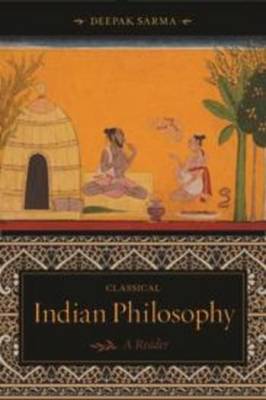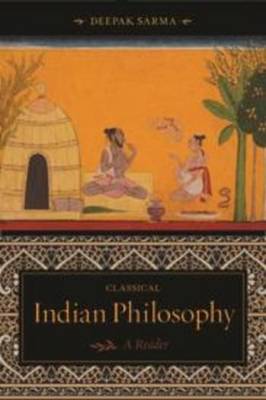
Je cadeautjes zeker op tijd in huis hebben voor de feestdagen? Kom langs in onze winkels en vind het perfecte geschenk!
- Afhalen na 1 uur in een winkel met voorraad
- Gratis thuislevering in België vanaf € 30
- Ruim aanbod met 7 miljoen producten
Je cadeautjes zeker op tijd in huis hebben voor de feestdagen? Kom langs in onze winkels en vind het perfecte geschenk!
- Afhalen na 1 uur in een winkel met voorraad
- Gratis thuislevering in België vanaf € 30
- Ruim aanbod met 7 miljoen producten
Zoeken
€ 62,95
+ 125 punten
Uitvoering
Omschrijving
Deepak Sarma completes the first outline in more than fifty years of India's key philosophical traditions, inventively sourcing seminal texts and clarifying language, positions, and issues. Organized by tradition, the volume covers six schools of orthodox Hindu philosophy: Mimamsa (the study of the earlier Vedas, later incorporated into Vedanta), Vedanta (the study of the later Vedas, including the Bhagavad Gita and the Upanishads), Sankhya (a form of self-nature dualism), Yoga (a practical outgrowth of Sankhya), and Nyaya and Vaisesika (two forms of realism). It also discusses Jain philosophy and the Mahayana Buddhist schools of Madhyamaka and Yogacara. Sarma maps theories of knowledge, perception, ontology, religion, and salvation, and he details central concepts, such as the pramanas (means of knowledge), pratyaksa (perception), drayvas (types of being), moksa (liberation), and nirvana. Selections and accompanying materials inspire a reassessment of long-held presuppositions and modes of thought, and accessible translations prove the modern relevance of these enduring works.
Specificaties
Betrokkenen
- Auteur(s):
- Uitgeverij:
Inhoud
- Aantal bladzijden:
- 288
- Taal:
- Engels
Eigenschappen
- Productcode (EAN):
- 9780231133999
- Verschijningsdatum:
- 14/04/2011
- Uitvoering:
- Paperback
- Formaat:
- Trade paperback (VS)
- Afmetingen:
- 154 mm x 228 mm
- Gewicht:
- 353 g

Alleen bij Standaard Boekhandel
+ 125 punten op je klantenkaart van Standaard Boekhandel
Beoordelingen
We publiceren alleen reviews die voldoen aan de voorwaarden voor reviews. Bekijk onze voorwaarden voor reviews.









